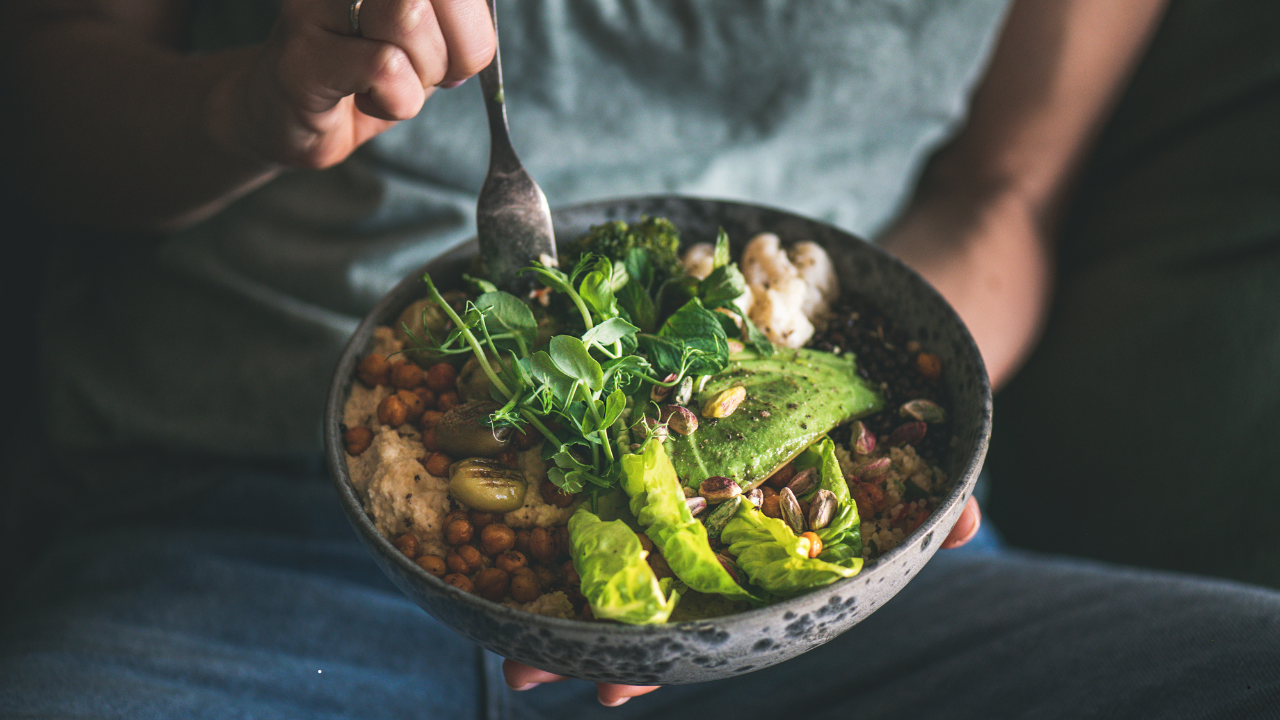Fuelling for Hormonal Health in Menopause: Why What You Eat Really Matters

Let’s talk about something that’s easy to overlook when you’re tired, stressed, and just trying to get through the day:
How you’re fuelling your body.
In peri-menopause and beyond, your hormones are shifting. Estrogen and progesterone drop, which affects:
-
Mood
-
Sleep
-
Metabolism
-
Body temperature
-
Energy
-
Cravings
-
Muscle and bone maintenance
And while we can’t “fix” that with one magic food or supplement, how we eat can absolutely help.
1. Stop under-eating
This is one of the biggest issues I see.
So many women try to eat less to lose weight… it's a narrative we've been sold for decades now…but that often backfires in mid-life.
Why?
Because under-eating increases cortisol (your stress hormone), which:
-
Makes you feel anxious or flat
-
Disrupts sleep
-
Encourages fat storage (especially around the middle)
-
Lowers your ability to build or maintain muscle
You need to eat enough to support hormone function, muscle repair, and brain clarity.
2. Don’t skip carbs
Carbs are NOT the enemy. In fact, they’re essential for hormone regulation and recovery—especially around your workouts. And I'm talking good carbs of course! Not the processed kind.
Think of carbs as fuel for your brain, your energy, and your strength gains.
Whole grains, root veggies, fruit—they all play a role.
👉 Dr. Stacy Sims recommends prioritising carbs around training to support cortisol balance and recovery.
3. Eat enough protein — and spread it through the day
This one’s huge, and often missed.
As estrogen drops during menopause, your body becomes less efficient at using dietary protein to build and repair muscle. That means you actually need more, not less.
Dr. Stacy Sims recommends aiming for around 30-40 grams of protein per meal, and making sure you’re getting it evenly throughout the day—not just one big protein hit at dinner.
Protein helps:
-
Preserve muscle mass
-
Support bone health
-
Keep you fuller for longer
-
Stabilise blood sugar
-
Improve recovery from training
Think: eggs, Greek yoghurt, chicken, tofu, legumes, cottage cheese, tempeh, fish, protein powder.
Don’t forget breakfast—this is where most women miss the mark.
4. Prioritise food timing
Try to eat:
-
Within 30 mins of waking (women have a cortisol spike when they wake so eating within 30 mins reduces this)
-
Before and after workouts
-
Every 3–4 hours with protein + carbs
This helps regulate blood sugar, support estrogen balance, and prevent those awful energy dips or intense cravings.
Skipping meals or going too long without eating just adds stress to an already stressed system.
5. Include healthy fats and fibre
These help:
- Stabilise mood
- Support digestion + hormone detox
- Improve heart + brain health
Think: avocado, olive oil, nuts, seeds, oily fish, and plenty of colourful veg.
6. Let go of restriction
You don’t need to cut out entire food groups or go on a cleanse.
Strict diets often create more stress and disconnect you from your body’s signals.
Instead, ask yourself:
👉 Does this meal make me feel clear, stable, and nourished?
If not, what’s one small tweak you could make next time?
Final word: food is part of the fix
You don’t need to be perfect to feel better. But you do need to fuel the body you’re living in now — not the one you had at 25.
Eat to support your hormones, not fight them. Your energy, mood, and strength will reflect the change.
Need help putting this all together?
If you’re doing the workouts, eating “well,” but still not feeling your best — I get it. I’ve been there too.
Whether you’re local to Queenstown and want to train in person, or you’re already in the gym but unsure how to adjust things for menopause, I work 1:1 with women to make this all feel doable.
Get in touch if you’d like to chat about working together — online or in-person — and I’ll help you build a plan that supports your hormones, lifestyle, and goals.

